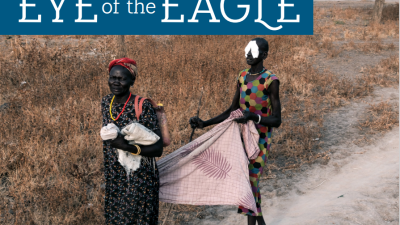Publications
We invite you to browse our latest publications. Some external links below may require a subscription.
Women, Peace, and Security in Sudan: Priorities for a Sustainable Future
Volunteer at The Carter Center

Trichiasis With and Without Tarsal Conjunctival Scarring: A Multi-Country Observational Study
Elimination of Human Onchocerciasis: Progress Report, 2024–2025
Policing Alternatives: A Public Opinion Survey

Eye of the Eagle | Summer 2025 (Vol. 26, No. 2)

Are Children Least Engaged With Health Care More Likely to Have Trachoma?
Voices Beyond the Battlefield: Future Civic Space and Recovery Prospects
Guinea Worm Wrap-Up 324
Guyana General Election Preliminary Statement
1 of 149
Global Impact Starts with You
Your support sustains the Carter Center's mission of waging peace, fighting disease, and building hope around the world.

